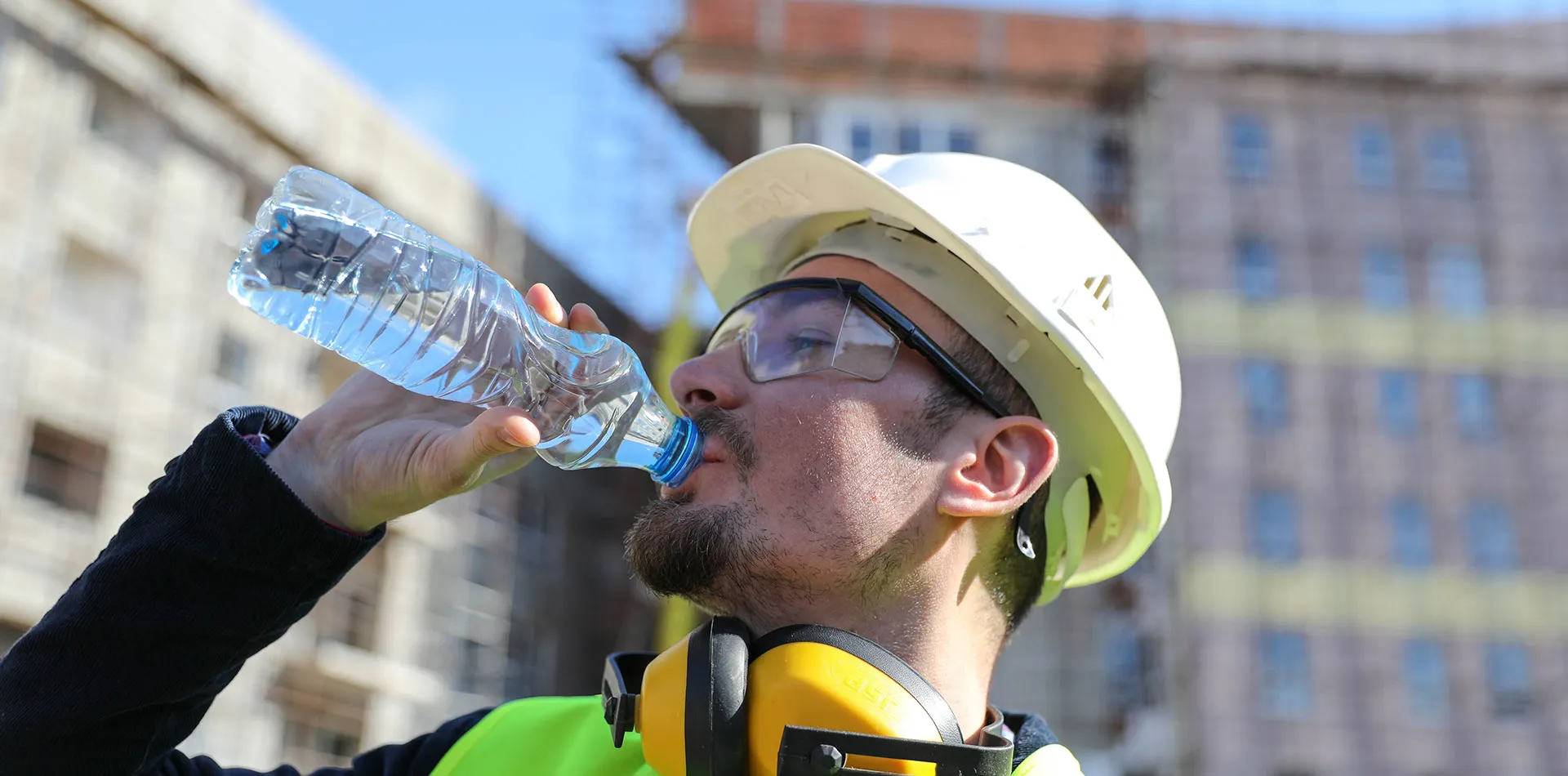
Dehydration occurs due to a lack of adequate water and other fluids in the body needed to perform its normal functions. If you don't replenish lost fluids, you will feel dehydrated.
The condition can usually be critical for young children who experience dehydration due to severe diarrhea and vomiting. Older adults generally have a low volume of water in their bodies; other medical conditions or taking medicines may increase the risk of dehydration.
Therefore, even minor ailments like infections hitting the lungs or bladder can cause dehydration in older adults.
Dehydration happens to people of any age when they don't drink enough water during hot weather or strenuous exercising. The person can revive from mild to moderate dehydration by drinking more fluids, but severe dehydration may seek immediate medical treatment.
Thirst may not always be the correct indicator of the body's need for water, as many older adults don't have the urge to quench thirst until they're already dehydrated. However, generally one must increase their water intake during hot weather or when they are ill.
Some signs of dehydration in the infant or young child are dry mouth and tongue, sunken eyes, cheeks, no tears when crying, no wet diapers for three hours, hollow soft spot on top of the skull and laziness or irritability.
Symptoms can be extreme thirst, dark-colored urine, fatigue, dizziness, confusion, and less frequent urination for adults.
Get advice from a doctor when you or a loved one has diarrhea for 24 hours or more, can't keep down fluids, has bloody or black stool or irritable or disoriented, much sleepier or less active than usual.
The reason for dehydration is when you don't drink plenty of water because of sickness, busyness or nonavailability of safe drinking water during travelling, hiking or camping.
• Diarrhea, vomiting. Severe, acute diarrhoea, resulting in tremendous loss of water and electrolytes in a short amount of time. And when there is vomiting along with diarrhea, even more fluids and minerals are lost.
• Fever. High fever causes more dehydration, and the condition worsens when you have a fever and diarrhea and vomiting.
• Excessive sweating. Sweating causes the body to lose water, mainly when, after vigorous activity and you don't replenish the body fluids, leading to dehydration. Hot, humid weather causes more sweating, raises the chances of fluid loss in the body.
• Increased urination. Sometimes undiagnosed or uncontrolled diabetes can cause increased urination. Some medications, like diuretics and blood pressure medicines, may also lead to dehydration caused by frequent urination.
Anyone can get dehydration, but greater risk occurs to:
• Infants and children. Infants and children often are at risk to be dehydrated as they are more vulnerable to severe diarrhea and vomiting, high fever or burns. They often may not tell when they are thirsty or drink by themselves, leading to dehydration.
• Older adults. With age, the body's fluid reserve gets smaller, and the ability to conserve water is lessened. Even the thirst sense gets less acute. These, along with other chronic illnesses like diabetes and dementia, and certain medications may raise the risk of dehydration.
• People with chronic diseases. Conditions such as uncontrolled or untreated diabetes, kidney disease may raise the risk of dehydration. Even medicines that increase urination, having a cold or sore throat make you more susceptible to dehydration. You may be drinking and eating less during sickness.
• People who work or exercise outside. In hot and humid temperatures, the risk of dehydration and heat illness rises as sweat cannot evaporate and cool quickly as it usually does in humidity. Increased body temperature will require more fluids.
Dehydration may cause serious complications, such as:
• Heat injury. When you don't have enough fluids after sweating heavily or exercising vigorously, the condition can range from mild heat cramps, heat exhaustion to potentially life-threatening heatstroke.
• Urinary and kidney problems. Getting dehydration for extended or repeated periods may cause urinary tract infections, kidney stones and even kidney failure.
• Seizures. Electrolytes misbalance like potassium and sodium levels become mixed up; it can cause involuntary muscle contractions and even a loss of consciousness.
• Low blood volume shock (hypovolemic shock). This is a fatal complication of dehydration that happens when low blood volume causes a fall in blood pressure and reduces the amount of oxygen in your body.
Drinking plenty of fluids and consuming foods high in water like fruits and vegetables can prevent dehydrations.
Make this thirst your guide for drinking an adequate amount of fluids daily and extra liquids when:
• Your child is vomiting or has diarrhea begin giving extra water or an oral rehydration solution at the first occurrence of illness.
• Hydrate the body before and during strenuous exercise at regular intervals and continue drinking water. A clear, dilute urine is a good indication to check and identify well-hydrated.
• The body needs additional water in hot or humid weather to lower the body temperature and cover water loss caused by sweating. Water is required to combat moisture loss from dry air in cold weather, especially at higher altitudes.
• For older adults, take extra fluids during minor illnesses like influenza, bronchitis or bladder infections.
Patient Experience